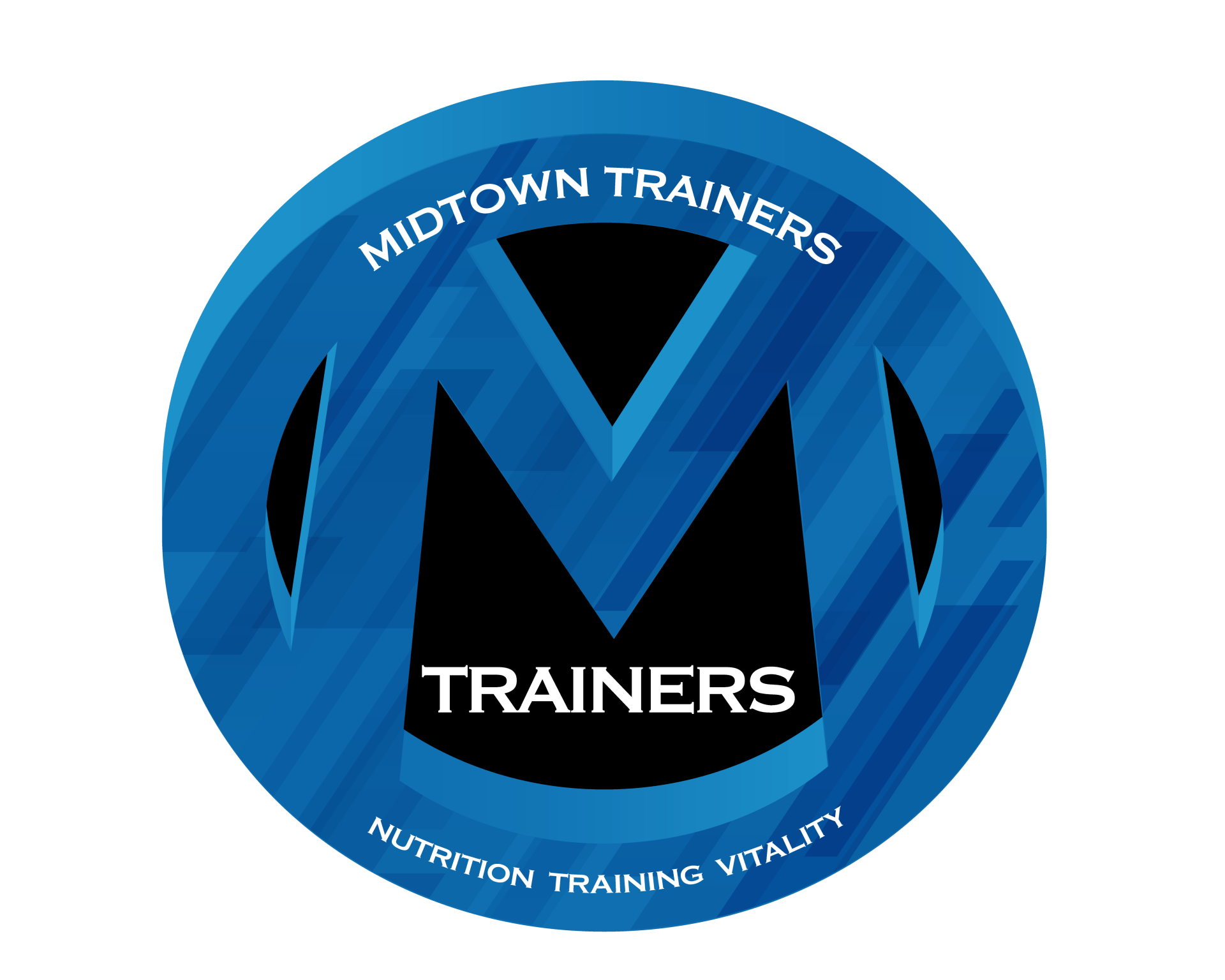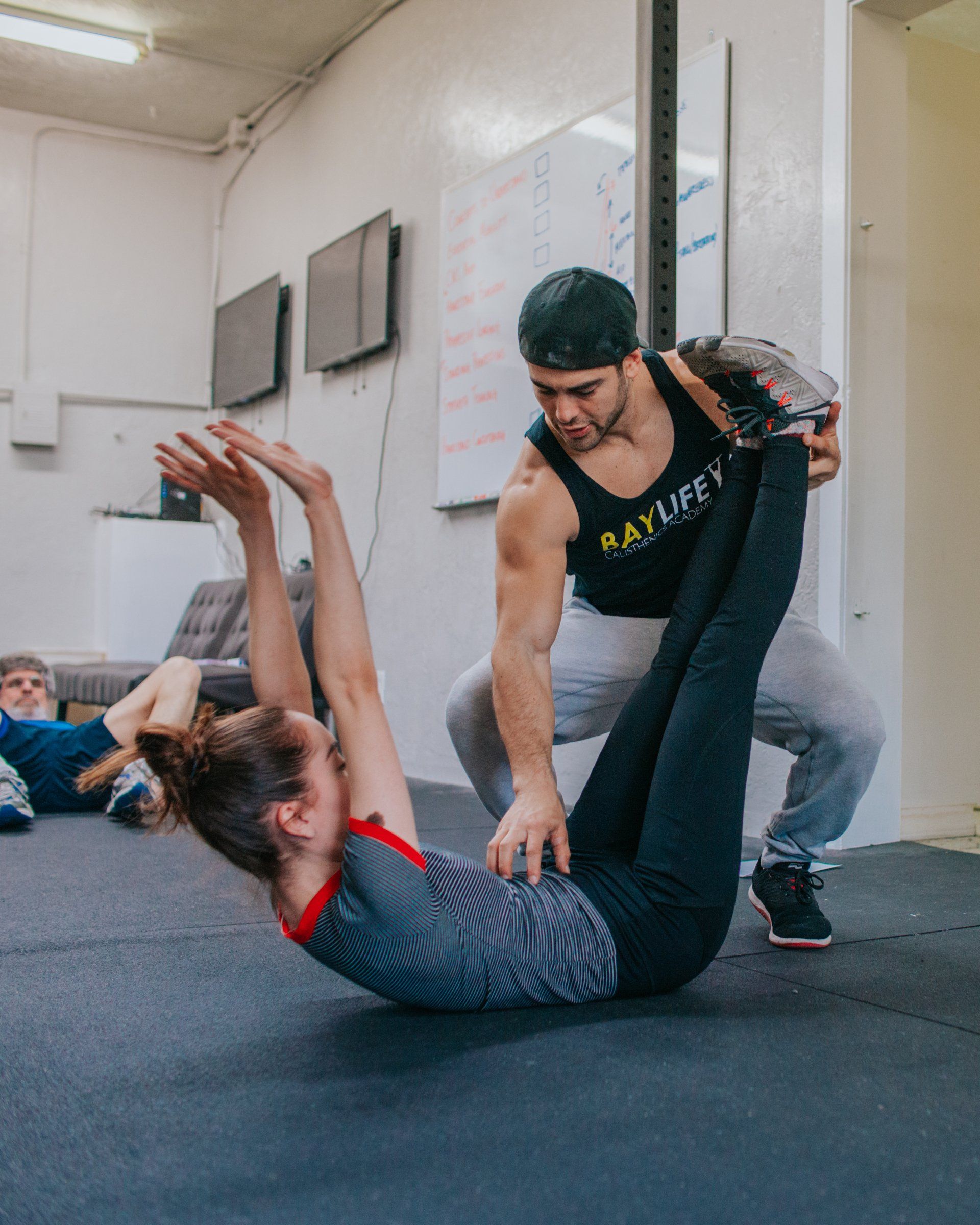The Ultimate Guide to Eating For Your Workout
Nutrition plays a vital role in your path to optimal health and fitness. At Midtown Trainers, your workouts are carefully crafted to support your athletic and physique goals. But what you do outside the gym matters, too. Specifically, what you eat and drink.
Properly fueling your body for exercise helps you get more out of your training sessions and ensures optimal results. Let’s take a closer look at what to eat before and after exercise to optimize your energy, performance and recovery.
Pre-Workout:
Carbohydrates have gotten a bad rap recently, but they are actually your body’s preferred fuel source for exercise, especially at higher intensities and longer durations. If it’s been more than a few hours since your last meal, or you train first thing in the morning, eating a carb-rich snack about an hour beforehand will boost energy, improve endurance, and prevent your body from breaking down lean muscle tissue.
You may be surprised by some of the recommendations below. In fact, nutrition to optimize athletic performance is sometimes the opposite of general healthy eating guidelines. For overall cardiovascular and metabolic health, we want to focus on fiber-rich carbs, and pair carb-rich foods with protein and fat for greater satiety. But that’s not the case right before exercise.
The less time you have before your workout, the more you want to stick to quick-digesting carbs. Limit fiber and fat, which take longer to digest, to prevent GI distress. Depending on timing and individual tolerance, you may be able to include a small amount of protein in your pre-workout snack, such as eggs, Greek yogurt or peanut butter.
Here are some easy, carb-rich snack ideas to fuel up before your next training session:
- Fresh fruit such as a banana or grapes
- Dried fruit such as raisins, apricots or dates
- Grain-based granola bar
- Oatmeal or low-fiber dry cereal
- English muffin, toast or bagel
- Pretzels or crackers
- Fig bar
- Fruit leathers
- Apple sauce or pureed fruit
- Sports drink or product, such as chews or gels
Keep in mind that pre-workout fueling is highly individual. Some people can tolerate a larger volume of food and are comfortable eating closer to a workout, while others may find this causes GI distress. The good news is, you can “train” your gut to better handle pre-workout nutrition with a practiced, gradual approach. If you are used to exercising on an empty stomach, start simple and start small. Experiment during your training to find what works best for you.
Post-Workout:
Immediately after exercise, your muscles are primed for nutrient absorption, so the nutrition you consume in the post-workout window is key to optimizing your results. Refueling as soon as possible after training promotes recovery, reduces soreness, and can even help curb hunger later on (so you don’t become “hangry” and raid the kitchen!)
Within an hour of finishing your workout, aim to have a meal or snack that provides both carbohydrates (to replenish energy stores) and protein (for muscle repair and growth.) Depending on your schedule, this may mean relying on a shake or bar for convenience. If so, make sure to select a reputable brand that has been third-party tested for safety and efficacy. Look for products with NSF, USP or Informed Choice for Sport verifications on the label. There are also plenty of easy and delicious ways to refuel with real food, if you time your training and eating schedule accordingly.
Post-Workout Meals
If your post-workout window aligns with a traditional meal time, try one of the nutritionally-balanced options below:
Breakfast:
- Egg or tofu scramble with roasted potatoes
- Breakfast sandwich with eggs, cheese and turkey bacon on whole grain English muffin
- Overnight oats made with old-fashioned oats, Greek yogurt, chia seeds, milk of choice and fresh fruit
Lunch:
- Turkey wrap with avocado and mixed greens
- Tuna salad made with chopped apples and celery in whole grain pita
- Green and grain salad with grilled chicken or protein of choice topped with nuts, seeds and/or oil-based dressing
Dinner:
- Stir fry with chicken, shrimp or tofu, plus brown rice and mixed veggies
- Baked salmon or protein of choice with quinoa or sweet potatoes and roasted brussels sprouts or cauliflower
- Lean beef, bison, turkey or bean burger on whole grain bun with grilled asparagus or zucchini
Post-Workout Snacks
If it’s going to be several hours until your next meal, try one of the snacks below for a powerful combo of protein and carbs to optimize recovery:
- Greek yogurt + fresh berries and/or whole-grain cereal
- Cottage cheese + pineapple or melon
- Apple + string cheese
- Pear + turkey or beef jerky
- Orange slices + hard-boiled eggs
- Tuna or turkey on whole grain crackers
- Smoothie made with fresh or frozen fruit, plus yogurt or protein powder
The Takeaway:
Dialing in on what you eat before and after exercise will help you get the most out of all the work you’re putting into your sessions at Midtown Trainers. But remember, there’s no “one size fits all” strategy to fueling for optimal performance. Experiment with different foods, products and timing to figure out what works best for you and your goals. For more individualized support, Midtown Trainers offers one-on-one coaching with a registered dietitian nutritionist who specializes in sports nutrition and weight management.
By Alissa Palladino MS, RDN, LD, CPT


